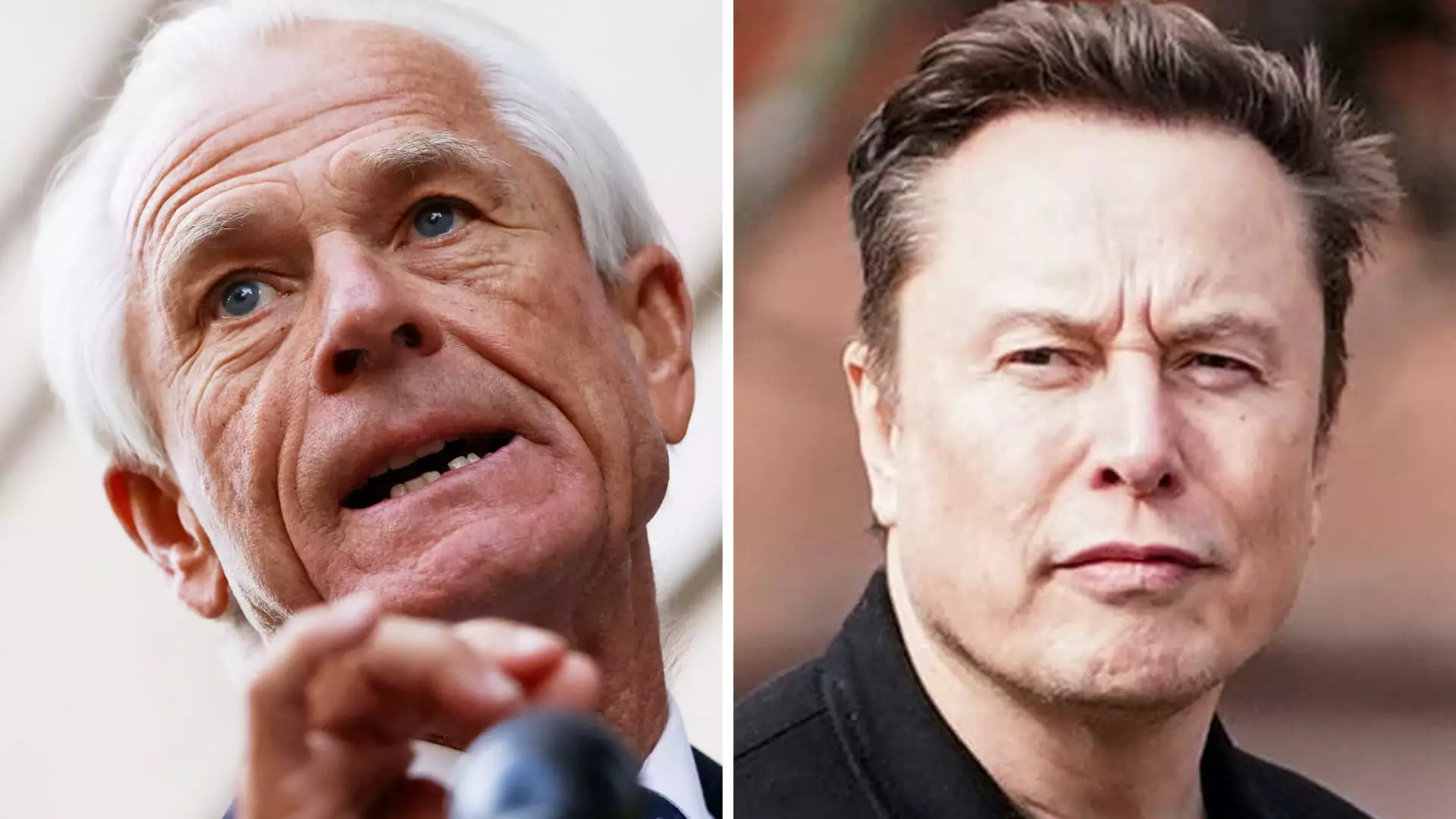The recent exchange between Peter Navarro, the White House trade adviser, and Elon Musk, the billionaire tech visionary, reveals a troubling rift that goes beyond mere personality clashes. At the core of this dispute lies a fundamental disagreement on economic principles and the direction of American manufacturing. Navarro, with his hawkish stance on tariffs, envisions a robust framework where American jobs in manufacturing are prioritized, while Musk’s globalist approach seeks to minimize trade barriers and maximize profitability. This clash of ideologies can have profound implications for American workers and the economy as a whole.
While Navarro attempts to paint Musk as merely an assembler who benefits from overseas production, the narrative is more complex. Musk’s Tesla isn’t just a car manufacturer; it symbolizes the future of transportation and energy. By advocating for zero tariffs – especially in a global market – Musk is not merely thinking about his bottom line; he perceives the need for a competitive edge in a fast-evolving industry. Trade policies must not only support American labor but also foster innovation and cross-border collaborations that ultimately benefit American consumers.
The Mockery Might Hide a Deeper Conflict
Navarro’s attempt to downplay tensions with Musk by dismissively saying, “I’ve been called worse,” unintentionally reveals a deeper psychological stratum in their conflict. The levity serves as a coping mechanism; after all, who wouldn’t feel overshadowed by the brilliance and charisma of someone like Musk? However, it also begs the question: is the administration’s position on trade truly unified, or are we witnessing the rhetorical facade of coherence while internal divisions simmer beneath the surface?
Musk’s jabs at Navarro, such as calling him a “moron,” further underscore this disunity. The demeaning humor embedded in these interactions tells us that there may be more than just differences in economic strategy at play here. There’s a clash of personalities and philosophies, one rooted in traditionalist values that Navarro embraces, versus the boundary-pushing, innovative spirit that Musk embodies. Such stark differences can easily lead to a fractured approach in policymaking, with significant consequences for American jobs and international standing.
The Dangers of Divisive Economic Policies
A robust and equitable economic policy framework must bridge the gap between Navarro’s America-first manufacturing ethos and Musk’s more progressive views on trade. By framing tariffs as the ultimate solution to revitalize domestic manufacturing, Navarro risks entrenching the U.S. economy in a protectionist mindset that isolates itself from global trends and collaborations. This approach may produce temporary gains, but the long-term repercussions could be devastating as the world progresses without America in the lead.
Moreover, Musk’s vision of a “zero tariff situation” with Europe appears to align with the broader liberal economic ideology that champions free trade and competition. In a modern economy fueled by technology and interdependence, failing to seize opportunities for strategic partnerships can alienate the U.S. from essential markets and impede innovations essential for the next industrial revolution. Understanding that not all manufacturing is the same is vital; the future is not purely about where products are made, but also about their design, innovation, and overall integration into a global economy.
Policy Implications Too Big to Overlook
The ongoing feud serves as a microcosm for the larger ideological battle that is reshaping the landscape of American politics, especially concerning economic policies. Navarro’s steadfast adherence to protectionist sentiments must recognize the nuances of an ever-globalizing market. If the administration does not mediate the conflicting views between traditionalists and modernists, we risk deepening economic inequality and hampering our ability to compete on the world stage.
Each economic policy moves like a chess piece across a geopolitical board. The decisions we make now will dictate the health of our manufacturing sector and the overall economy for generations to come. Instead of denigrating each other’s viewpoints with insults, both Navarro and Musk would benefit from engaging in constructive dialogue that prioritizes American innovation and global competitiveness. Trade must evolve to meet the challenges of the 21st century, or we risk falling behind, trapped within outdated paradigms of economic thought.

Leave a Reply